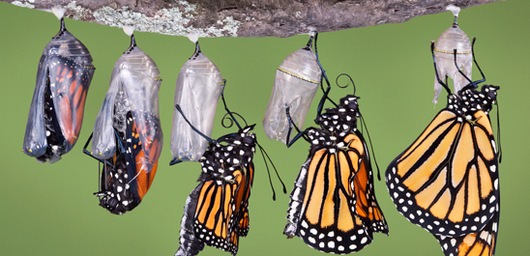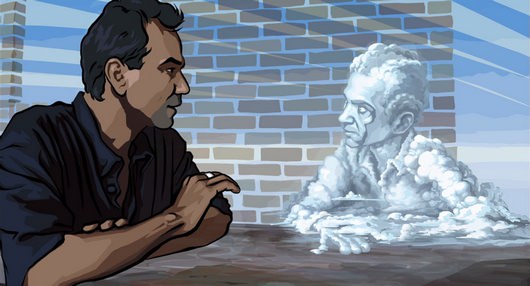17 Things I've Learned in 17 Years of Lucid Dreaming

I've been lucid dreaming for almost 17 years now.
That sounds like a long time. And yet, I've still got a lot to learn.
To the newcomer to lucid dreaming - who has the whole exciting journey ahead of them - I want to share some of the most profound, useful and surprising lessons from my experience.
I hope this sees you well on your dream travels.
1. Mindfulness is key. The easiest way to produce frequent lucid dreams is to make it a mental habit to observe and question your reality. Look out for clues that you might be dreaming and always have that in the back of your mind. Critical thinking is a severely under-appreciated trait. For lucid dreamers it is essential.
2. The senses are illusory. Your brain is capable of simulating a solid replica of waking physical reality in a lucid dream. It's mind-blowing. The idea that physical reality is necessary for us to perceive at all... is simply an illusion.
"Whatever I have accepted until now as most true has come to me through my senses. But occasionally I have found that they have deceived me, and it is unwise to trust completely those who have deceived us even once."
~ Rene Descartes
3. Nightmares are healthy. Nightmares release difficult feelings and rehearse fears and possible outcomes. They form a therapeutic and protective mechanism which help preserve your mental health. Embrace them always - especially lucid nightmares which you will remember most intensely.
4. Dream figures are unpredictable. People in lucid dreams resist being classified. Sometimes they can represent parts of your psyche, sometimes reflections of their real life counterparts, and sometimes simply empty shells. They rarely tell explicit truths; like dreams themselves, their insights are usually encoded.
5. Expectations rule. In a lucid dream, your conscious expectations play a significant role. Have bold confidence that you can fly, and you'll enjoy boundless flights of fancy. Expect to meet your soul mate behind a door, and he or she will be waiting with a smile. Narrate your expectations for best effect - for example, "I'm going to leap into space now!"
6. Always intensify your lucidity. There's always potential to further intensify your lucidity, making the experience longer, richer and more easily directed. Rub your hands together, perform a reality check, say "I'm dreaming" and study your palms. All provide more consciousness at the start of a lucid dream and should be done any time you feel your awareness is fading.
7. Lucidity is slippery. If you don't maximize your lucidity, it's highly likely that your awareness will slip away sooner than you'd like. This is due to the reduced functionality of your sleeping brain - it is simply harder to focus for long periods of time. Regularly remind yourself that you're dreaming to bring your full attention back to the reality of the dream.
8. False awakenings rock. Dreaming of simply waking up can be frustrating. But false awakenings can also be an enlightening reminder that there is a weird and wonderful world in there yet to be explored. They are so vivid, and so powerfully convincing, it is surely an invitation to play. A false awakening is like my brain challenging me to go deeper down the rabbit hole.

9. Sleep paralysis can be awesome. No, not always. Many people suffer needlessly with this paralyzing condition. But harnessing it in a positive way can produce a snap gateway to a lucid dream. If sleep paralysis is a factor in your life (and it may be, whether you lucid dream or not) you may as well put it to great use. Instead of fighting it - use it to become lucid.
10. Lucid dreaming is a sleeping meditation. Studies have found that lucidity creates intense focus, self awareness and dissociation from the outside world - just like meditation. Furthermore, the stimulus of a lucid dream can be dissolved to nothing, allowing you to experience pure consciousness in a void. What better kind of meditation could there be?
11. Lucid memories are golden. Waking memories are a patchwork of subjective emotions and sensory interpretations. Your brain does little to differentiate lucid dream memories - it's all "real". So, whether you've just lucid dreamed of surfing the greatest wave, or meeting your hero in the flesh, those memories will feel real and vivid and wonderful years from now.

12. Lucid dreaming is a lifestyle. You can lose the ability to lucid dream if you disregard it long enough. Stress, drugs, sleep deprivation, a hectic lifestyle... myriad factors can get in the way of lucid dreaming, even for long term practitioners. To keep lucid dreams coming, make it a lifestyle choice to respect your sleep and dreams.
13. Lucidity is a by-product. Lucid dreaming is the accidental lovechild of dreams and consciousness. Perhaps the evolution of lucid dreaming will prove a highly useful adaptation; by reducing stress, enhancing our problem solving skills, and in a host of other ways that impact on our success as a species.
14. No two lucid dreams are the same. Even if you adore lucid dreaming of the same thing (hello... flying!) each dream will be totally unique. It's not even like replaying the same level of a video game. In each dream, you'll feel different emotions, explores different locales, and improve your abilities.
15. Conscious dreams are a conduit to creativity. Without the critical left brain vetoing creative ideas on the trot, lucid dreaming allows unrestricted artistic expression. This opens you up to thoughts, feelings, solutions and imagery you might not explore in waking life.

16. Lucid dreams are therapeutic. Helpful insights are often encoded in your regular dreams - and lucid dreaming allows you to seek specific wisdom straight from the horse's mouth. Sometimes known as "the dreamer of the dream", "the silent observer" or "the inner self", you can access this source by shouting any question out loud and waiting for the dream's candid response.
17. The learning curve is steep. In the beginning, lucid dreaming might feel like all work and no play. Induction is usually the greatest challenge. But it's a sharp learning curve; well worth investing the initial intensive practice to reap the rewards of a lifetime of exhilarating lucid dreams.
Sound awesome? It truly is - and everyone is capable of lucid dreaming.
If you enjoy this site, consider taking our popular free lucid dreaming course.


















